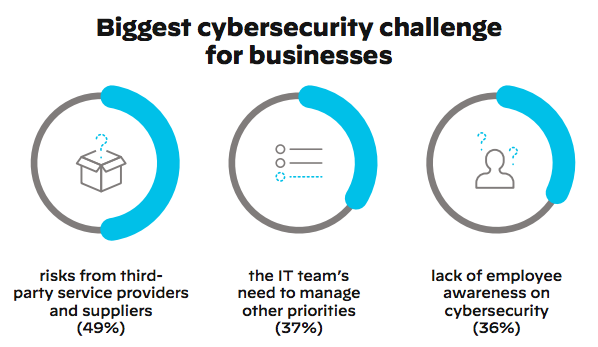About four in every five companies (79%) increased their cybersecurity budget between 2019 and 2020, which is not surprising considering a number of high-profile breaches and cyberattacks in Singapore in 2018 and 2019, according to a survey by Palo Alto Networks.
The survey, conducted in early February 2020, found that in addition to increasing their cybersecurity budgets, many companies in Singapore are also feeling more confident in their ability to mitigate cyberthreats.
There were 400 respondents holding a range of management and IT-related roles — 100 each from Thailand, Indonesia, Philippines and Singapore.
Findings show that more than half (53%) of companies in Singapore also reported allocating over half their organisation’s IT budget to cybersecurity spending. This initial increase in budget was mainly attributed to the growing volume (71%) and sophistication (58%) of threats, as well as a need to upgrade existing frameworks to incorporate automation (51%).
“In light of the COVID-19 pandemic, businesses will now need to navigate the newfound risks brought about by remote work and other COVID-19-themed threats,” said Teong Eng Guan, VP for ASEAN at Palo Alto Networks. “This will require a relook at cybersecurity existing strategies and investments.”
Like other countries in ASEAN, companies in Singapore continue to rely on popular solutions such as anti-malware and antivirus software (61%).
Software-defined wide area network (SD-WAN) security (62%) was reported as the most popular solution amongst Singapore companies as a means of maintaining visibility into ever-expanding, complex digital networks.
Likewise, over half of businesses (54%) are already investing in cloud-native security. A similar proportion have also started leveraging next-generation firewalls (54%) as well.
In preparation for an impending rollout in 2021, 31% have also already ventured into 5G security for IoT.
Two-thirds (66%) of Singapore companies regard their organisation’s risk to cyberthreats as “low” to “moderate”. Overall, Singapore companies were the second most confident of the four countries surveyed with 75% believing that their current security measures are capable of protecting them from existing cyberthreats.
When asked to rank the biggest cybersecurity challenges within their companies, respondents identified risks from third-party service providers and suppliers (49%), the IT team’s need to manage other priorities (37%) and, lack of employee awareness on cybersecurity (36%).
















